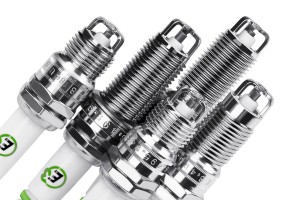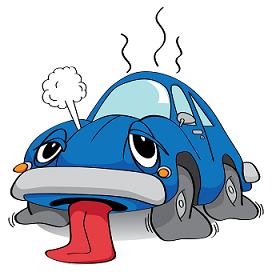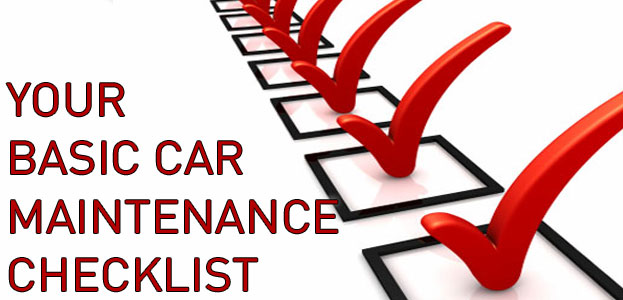How often should I change my oil?
Regular motor oil needs to be changed every 3,000 miles. Synthetic motor oils should be changed every 5,000 miles. It’s important to check your oil regularly, at least once each month.
What should the tire pressure be on my car?
Maintain your tire pressure according to the manufacturer’s PSI (pounds per square inch) specification, which is located on the side of each tire. Tires that are properly inflated result in improved gas mileage, more even tire wear and better vehicle handling.
How often should l check my anti-freeze?
Regularly checking your anti-freeze and other automotive fluids is a critical part of good vehicle maintenance. You should do this once per month.
How long do spark plugs last?
This depends on what type of spark plugs you’re using. Automobiles that are over 15 years old usually have standard plugs that last between 12,000 and 15,000 miles. Newer automobiles manufactured up to the year 2000 often feature plugs with platinum tips and these last for around 30,000 miles. Finally, in vehicles made in 2001 and later, iridium tips are common, and these typically last for 90,000 miles.
How often should I change the timing belt on my car?
It’s recommended to consult your vehicle’s owner’s manual to find out how often your timing belt should be changed. These are made from rubber, and as such, they should be changed on a regular maintenance schedule. If you’re uncertain whether your timing belt needs to be replaced, a mechanic can determine this for you.
Furthermore, some automobiles use a timing chain rather than a belt. Since these are made from metal, it’s not necessary to replace them on a schedule. These can last for around 200,000 miles before replacement becomes necessary.
Will it hurt my engine if I drive my car when the check engine light is on?
Unless your check engine light is flashing, it’s possible to damage your vehicle by continuing to drive it, but it’s unlikely. However, it’s important to get the issue looked at as soon as you can. At the very least, the vehicle’s performance could be negatively affected.
What is the primary cause of tire damage?
While many things can result in tire damage, improper inflation is the most common issue. It’s recommended to keep a pressure gauge in your glove box and check the pressure in each tire frequently.
How often should I change my wiper blades?
If your vehicle is parked inside, experts suggest changing your windshield wiper blades once per year, or sooner if they begin streaking. On automobiles that are parked outside or in locations where the wipers are used more often, you should change them two to three times annually to maintain optimal visibility.
Why are my brakes making noise?
If you notice a screeching or grinding noise when you apply the brake pedal, it’s a strong sign that you need to have the brake pads or shoes replaced. Brakes that are in good condition shouldn’t make any sounds when you use them. Even if the real issue ends up being something non-serious, it’s important to remember that loud brakes are unsafe brakes. Failure to have them serviced is a potentially dangerous mistake and can increase the cost of repairs down the road. If your vehicle’s brakes are noisy, you should have them inspected.
 What can I do if my car overheats?
What can I do if my car overheats?
If you’re traveling at normal highway speeds and your automobile begins overheating, shut the air conditioning off, turn the heater on and pull over immediately. When a vehicle overheats at these speeds, there is usually something wrong with the cooling system, like a clogged radiator, ruptured hose or broken drive belt or low coolant.
Once you’ve pulled over, turn off the engine, carefully open the hood, and allow the engine block to cool for at least 20 minutes. Once over boiling has ceased, and the engine is sufficiently cool, inspect it for evidence of problems. It’s extremely important that you don’t open the radiator cap unless the engine is off, and the surface of the radiator is cool. If you don’t see any visible problems, such as a ruptured hose or broken belt, then pour a mixture of coolant and water into the overflow reservoir of the radiator. Start your vehicle again and slowly drive to the nearest mechanic shop.
Do I need to take my car to the dealer for regular maintenance work in order to maintain my warranty?
No, but it’s recommended to maintain a record of any work your vehicle has undergone.
When should I take my car to the dealer for work?
If your vehicle is still under warranty, you should take it to the dealership for any work, as well as to address any recalls.







